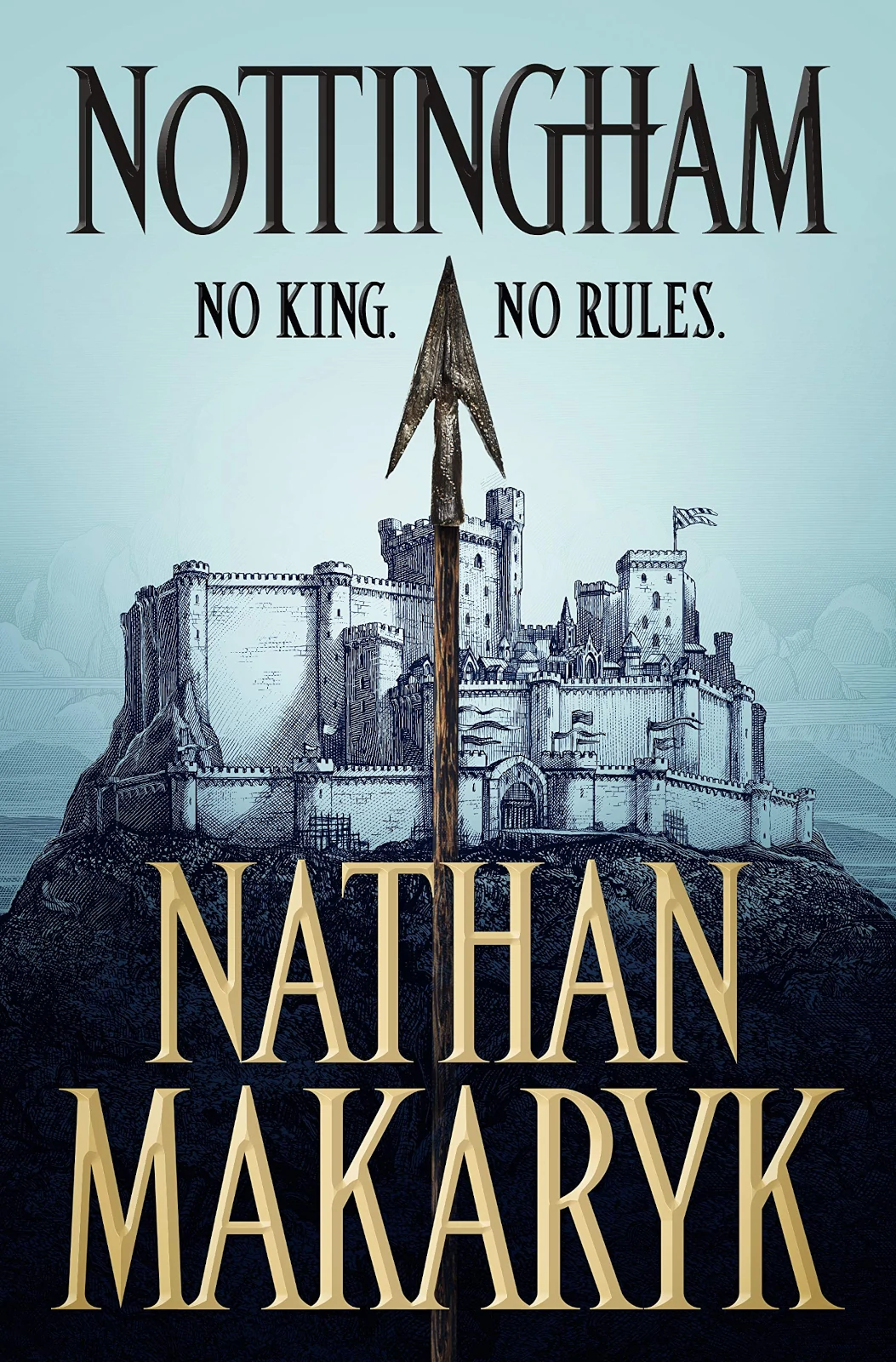
Fresh Perspectives: A Review of Nottingham by Nathan Makaryk
Words By Stefanie Molina
Published August 6, 2019 by Macmillan.
The world’s collective nostalgia has lately led us toward a market saturated with reboots and retellings—and in literature, fairy tale retellings seem to be the order of the day. Nottingham by Nathan Makaryk is a treat for the mind and the heart. It dissects the age-old question of whether the ends justify the means, taking the classic story of Robin Hood and turning it into an even more intense commentary on the human limitations of perspective, violence, and greed. In accomplishing all of this, Makaryk creates a narrative that finds itself both flat and fascinating.
Nottingham is told in eight parts, with chapters shared between a cast of six recurring characters. It is this narrative style which contributes to the story’s slow start, as it takes time for the reader to fall deeply into the intricacies of the web Makaryk crafts and to fall, too, for the characters themselves. Loaded with political intrigue, the first portions of the story are largely an intellectual experience as we recognize familiar faces, try to guess at who will show up next, and attempt to maintain a grasp of the complex world we’ve entered. Makaryk’s own humor, though enjoyable, causes less distinction between characters than readers might prefer, and as a consequence it is difficult to appreciate each character for who they are during this early time in the narrative.
As we continue, however, Makaryk begins to find his rhythm. Characters become rich and compelling. True, gritty darkness enters the scene. And it becomes clear that Makaryk is weaving a different story than we’ve come to expect from Robin Hood. This is not a simple fable about taking from the rich and giving to the poor. It is a story about perspective, and how it changes everything. We are as convinced of the Sheriff’s goodness as we are of the outlaws’—as we are even of the infamous Guy of Gisbourne’s. This ability to traverse different walks of life and lend each character not only respectability but nobility, kindness, and empathy—this is where Makaryk truly shines.
At the same time, the reader’s ability to sympathize with every side of the central conflict is what contributes to the tale’s feeling of flatness. Because it lacks the framework of good versus bad, the overwhelming feeling in the reader is not drive, but frustration. Every single one of our recurring characters wants peace. They want to keep their humanity. They want to do what’s best for their world. But through all six narrative lenses, we see how actions perceived as heroic by some seem utterly cold and destructive to others. The unexpected twists Makaryk adds to the story build on the reader’s frustration; each tragedy feels futile, and the obstacles thrown in the path of our peacemakers by other peacemakers begin to blur together as all of their efforts fail.
And perhaps this is the feeling Makaryk sought to inspire—to demonstrate just how pointless fightingfor peace can be. The violence these players visit upon each other, the blame, the pointing fingers—they paint a harsh picture of what it can sometimes mean to be human. Yet there is light, here, too: Makaryk captures the complexities of human relationships with an honesty, an intimacy that can be felt in the body. Though their stories are slightly different than we might expect, the love between Marion and Robin is understood deeply, and the intense, youthful connection between Will Scarlet and Elena Gamwell makes for as tragic a love story as any classic.
But despite these great loves, and valiant efforts to the contrary, an alarming number of characters meet their ends in vain until only the smartest players are left on the board to continue the fight in the sequel. I hope that sequel holds more drive, more of an arc; a focus on approaching some firmer form of resolution might serve Markaryk well. But the quality of his writing, the emotions, the mettle of his characters—so bold and true—are more than enough to make me want to read it.